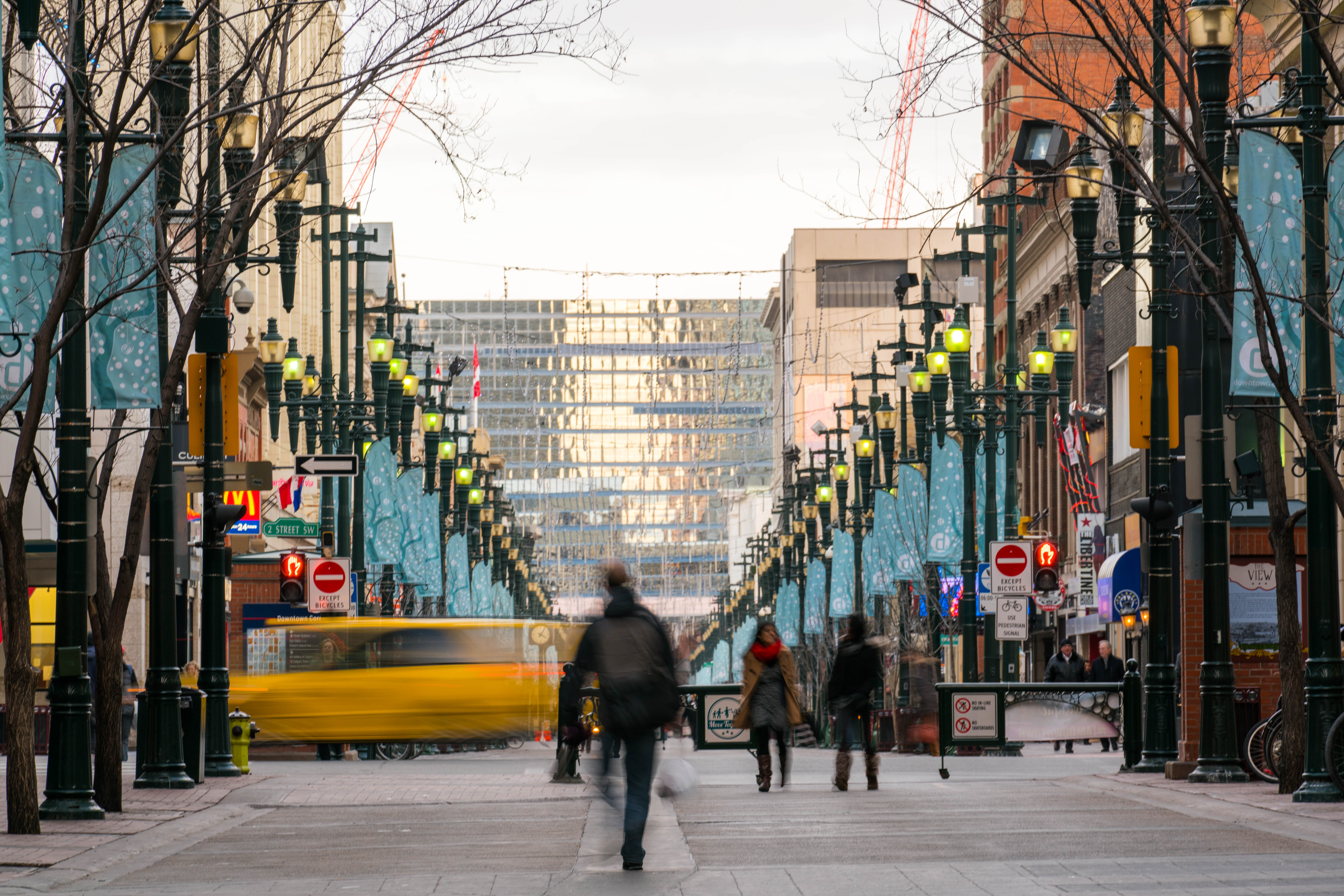Adjustments
Mid-cycle budget adjustments
On Nov. 22 2024, Council approved adjustments to the 2023-2026 Service Plans and Budgets. The approved changes balances keeping property tax and water, sewer and waste and recycling fee increases as affordable as possible. The changes also make meaningful investments in priority areas that improve quality of life for Calgarians, such as infrastructure, public safety, transit and housing.
The Council-approved 3.6 per cent tax increase for 2025 maintains a fiscally responsible budget that holds the line on further increases while still investing in priority areas, ensuring that critical services can continue.
Get an estimate of your next property tax bill.
Use your property's assessed value, which we mail out each January, to get an estimate of your next property tax bill before May.
Investing in what matters most
Key investment highlights include:

Infrastructure, maintenance and inspections
We’re investing in our water systems and improving pavement quality on high-speed roads, as well as other capital investments to maintain or improve infrastructure.

Housing, land use and local area planning
We’re investing in new community growth and supporting redevelopment in older communities, allowing for an increase in housing supply.

Public safety and downtown revitalization
We’re investing to make downtown and public transit safer for everyone.

Transit and transportation
We’re providing ongoing funding to improve services and keep transit running smoothly. We’ll continue to invest in expanding our transit network.
Additionally, Council made further critical investments for Calgarians without impacting their 2025 property tax bill. This was done by leveraging the projected favourable operating variances and making prudent use of reserves. Some key critical investments included:
- Improving pavement quality with an additional $20 million for 2025 to enhance the road network, enhancing safety and traffic flow.
- Investing an additional $13 million in a new Training Facility for Calgary Police Services.
- Rehabilitating recreational facilities by investing $7.5 million in 2025 and 2026 for required maintenance and repairs. In addition, $800,000 in operational funding and up to $400, 000 in funding for capital have been allocated to keep the Inglewood Pool open for the next two years or until safety concerns require its closure.
- Upgrading parks and playground amenities with a $2.5 million investment in capital for 2025.
These investments are in addition to items in the originally approved 2023-2026 Service Plans and Budgets.
See the full investment list: Mid-Cycle Adjustments to the 2023-2026 Service Plans and Budgets: Recommended Investments
Financial impact on Calgarians
| Changes in 2025 for the typical single residential property* | 2024 | 2025 change | |
|---|---|---|---|
| Municipal property tax per month | $214 | +$11.74 | |
| Waste & recycling and water utilities per month | $137 | +$5.09 | |
|
Total cost for City services |
$351 |
+$16.83 per month |
*A single residential property assessed at the median value of $697,000 in 2025, with a typical metered water usage of 19m3.
Property Tax
We’ve maintained the Council directed 2025 property tax increase at 3.6 per cent for existing properties. Administration looked closely at our investment strategies and funding priorities to find funding without additional increases to taxes or fees by:
- Reviewing corporate financial capacity.
- Leveraging other funding sources like grants and reserves.
- Reprioritizing projects within Services.
- Reallocating capital funds to higher priority projects.
Utilities
Utilities are essential for Calgarians. Investing in maintenance and enhanced inspections is key to ensuring reliability now and in the future. However, current rates haven’t kept up with the pressures of our growing and aging system.
- Utility fees for Water and Waste & Recycling will increase as these services receive very little or no property tax support. This will help us keep pace with inflation and population growth, ensuring that existing infrastructure is reliable and resilient now and into the future.


Mid-Cycle Adjustments Overview
We understand that budgets and adjustments can be overwhelming. We’ve put together this at a glance document to help you understand the proposed changes to the 2023-2026 Service Plans and Budgets.
At a glance documentDownload our detailed reports
- MCA to 2023-2026 Service Plans and budgets
- Recommended Investments
- User Fees and Rate Adjustments
- Capital Budget Adjustments
- Operating Budget Adjustments with no net budget impact
- Carry forward of One-Time Operating budget from 2024
- Property Tax Analysis
- Initiatives Adjustments
- Risk Analysis
- Municipal Fiscal Gap Report Update
- Borrowing Bylaws
- Operating budget continuity schedule
- Capital budget continuity schedule
- Council Presentation
Frequently asked questions
We’re answering questions that Calgarians have been asking about the budget. Stay tuned as we provide answers to frequently asked questions.
Why do property taxes increase as our population grows? Aren’t we collecting more tax from more people?
Property tax revenue lags and grows at a slower rate than population growth.
Property taxes are generated from properties instead of income or the number of people living in Calgary. Over the past two years, our population has increased by more than 140,000 people, but housing hasn’t increased at the same rate.
Property taxes also make up half of The City’s operating revenue, so it grows slower than our population growth. Some of The City’s other revenue sources do not grow with population.
Thus, the amount of property tax we collect grows slower than our population, which requires property tax increases to maintain City services such as Fire, Police and Transit.
Increased population means increased service demand.
As Calgary’s population increases, so does the demand for City services. This can include more people using transit services, more cars on the roads and more people using public spaces. This higher demand on services requires prompt funding, even though the increase in property tax revenue from new properties takes time to catch up.
Investing now for future housing and growth.
When a new community is developed, we build and run new roads, sewers, fire stations and other infrastructure. The costs to build and operate these essential services is paid before any of the homes and businesses are built or paying property tax.
Our 2025 budget adjustments include investments that support the increase in housing supply for Calgarians.
How do Calgary’s property taxes compare to other cities?
Calgary’s property taxes are some of the lowest among major cities in Canada. They’re also lower than three of our five closest neighbours.
Breaking it down:
- From 2020-2024, Calgary’s property taxes have increased at a slower rate than most other major Canadian cities – just 1.77%.
- Calgarians on average pay lower property taxes as a percentage of household income than most major cities in Canada.
- With our 2025 budget investments, Calgary will still have one of the lowest tax increases.
Learn more about our Financial facts.
How do the City budgets work?
Every four years, we develop service plans and budgets to meet the needs of Calgarians. These plans guide how we deliver City services and manage our finances. Watch this video to learn more. Discover more about our service plans and budgets at calgary.ca/budgets.
2024 adjustments
On Nov. 22 2023, Council approved adjustments to The City of Calgary’s service plans and budgets. These adjustments balance the desire to keep property tax and water, sewer and waste and recycling fee increases as affordable as possible for Calgarians while making meaningful investments in priority areas, such as affordable housing, public safety, and transit.

Adjustments process
Here is how the Adjustments process works:

